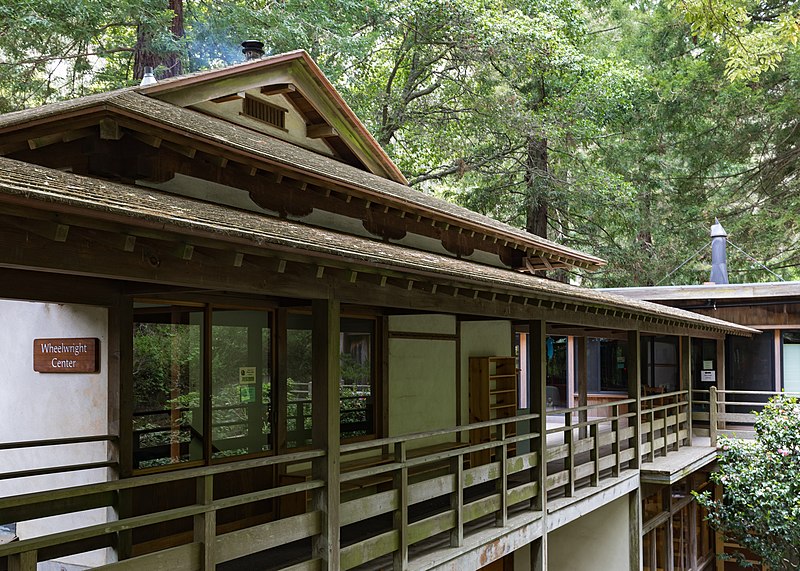Highlights
- We saw a surge in interest for the final Wiki Scholars course run in collaboration with the National Archives and Records Administration (NARA), so we decided to run an additional NARA Wiki Scholars course this summer (see below). Similarly, the Society of Family Planning (SFP) received so many applications for their summer Wiki Scientists course that they decided to sponsor a second course. We confirmed a Wiki Scholars course in partnership with the Colorado Alliance of Research Librarians. Librarians from several Colorado libraries will work with the Scholars & Scientists team to learn more about Wikipedia and how they can build Wikipedia-editing into their roles within the libraries. We also started a partnership with the International Society for Technology in Education (ISTE) for their Digital Citizenship Commitment Initiative (#DigCitCommit). This campaign will call educators to take action in making digital citizenship a critical competency for students. Wiki Education’s Student Program will offer one way for educators to take action and engage students to teach these crucial skills.
- Seven alumni from our NARA introductory courses collaborated with Wiki Education staff in a deep dive into one high-profile Wikipedia article: the entry for the Nineteenth Amendment itself. After four weeks, our Wiki Scholars were responsible for 68.8% of the article’s content, more than doubling its size. Among other contributions, they added information about the ways in which the amendment’s passage did not resolve voting rights for everyone, and explained that several groups continued to struggle afterwards. Some of the article also seemed to emphasize the role of men in the struggle for women’s suffrage, which was addressed in the process of rewriting and reorganizing the article based on research in reliable sources.
- Program participants in our Wikipedia Student Program, as well as our staff membersWikipedia Student Program Manager Helaine Blumenthal and Senior Wikipedia Expert Ian Ramjohn received awards from the National Institute for Occupational Safety and Health (NIOSH) for educating the public through Wikipedia.
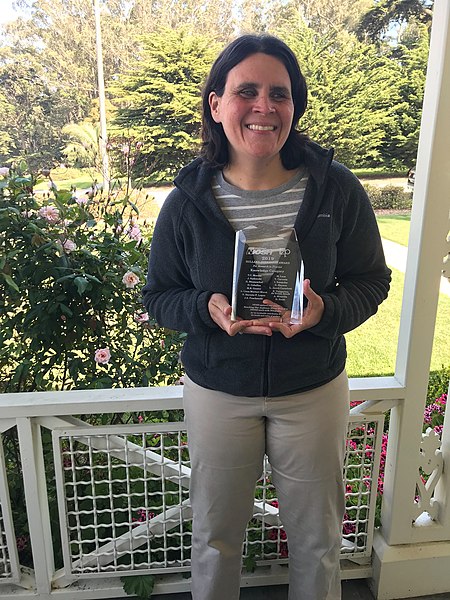
Programs
As part of our consulting efforts, Chief Programs Officer LiAnna Davis was invited to provide feedback on the annual report of VVIT WikiConnect, a Wikimedia student organization at Vasireddy Venkatadri Institute of Technology of Guntur, Andhra Pradesh, India. We offer our consulting services on program plans pro bono for members of the Wikimedia community as part of our service to our global collaborators, and VVIT WikiConnect’s Krishna Chaitanya Velaga took us up on this offer. The club was specifically seeking any suggestions for improvement on last year’s work as well as ideas for how to make the club more sustainable into the future. LiAnna offered detailed feedback to the group, which was well received.
Wikipedia Student Program
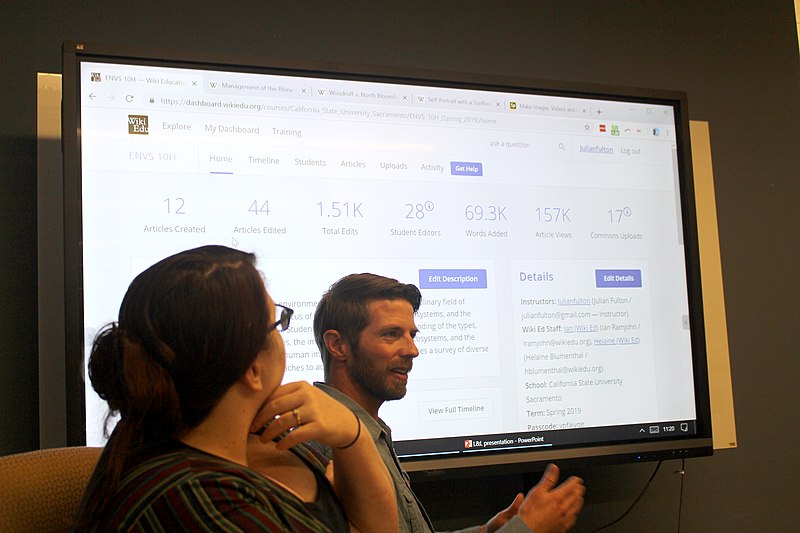
LiAnna visited the campus of California State University, Sacramento, to participate in a workshop on teaching with Wikipedia led by two participants in our Wikipedia Student Program, Julian Fulton and Rachel Miller. Julian and Rachel each talked about their motivations in teaching with Wikipedia, and three Sac State students joined them on the panel to describe their experiences in completing a Wikipedia assignment. LiAnna spoke about the support available to faculty from Wiki Education. About a dozen faculty were in attendance at the event, hosted by Sac State’s teaching and learning center.
Status of the Wikipedia Student Program for Spring 2019 in numbers, as of May 31:
- 400 Wiki Education-supported courses were in progress (231, or 58%, were led by returning instructors).
- 8345 student editors were enrolled.
- 66% of students were up-to-date with their assigned training modules.
- Students edited 7,790 articles, created 841 new entries, and added 6.58 million words.
While a handful of spring quarter courses are still active, May saw the majority of our Spring 2019 courses come to an end. We’re incredibly proud of our Spring 2019 cohort of courses and are grateful to the students and instructors who collectively added over 6.5 million words to Wikipedia this term!
While Wikipedia Experts Shalor Toncray, Ian Ramjohn, and Elysia Webb were busy reviewing student contributions, Helaine was preparing for the Fall 2019 term. Helaine also had the opportunity to present with Samantha Weald, Wiki Education’s Customer Success Manager, at a jointly sponsored webinar with the Society of Family Planning (SFP). During the program, Helaine and Samantha detailed how medical professionals can help to improve Wikipedia’s coverage of issues related to all aspects of family planning, from abortion to contraception to maternal health. The webinar coincided with the announcement of our partnership with SFP.
While the summer term is quiet by comparison, we’re currently supporting 31 courses during Summer 2019 and anticipate that more will join as the summer progresses.
Student work highlights:
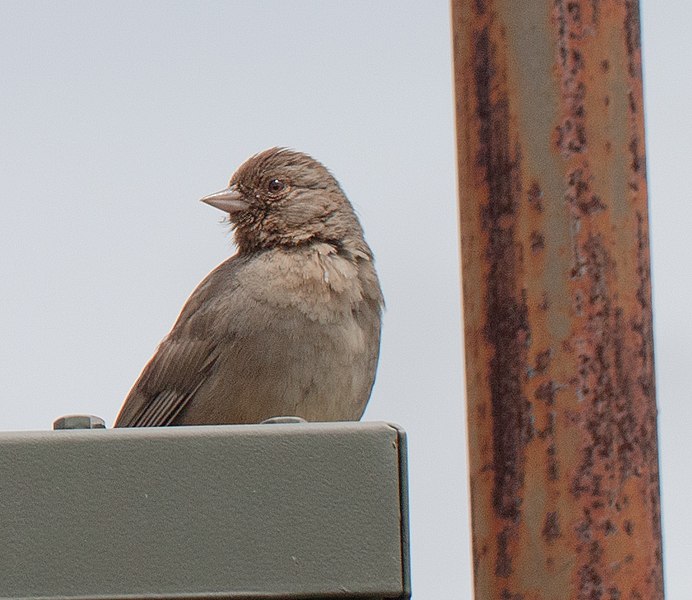
Image by Kai Medina (mk170101), CC BY-SA 4.0 via Wikimedia Commons.
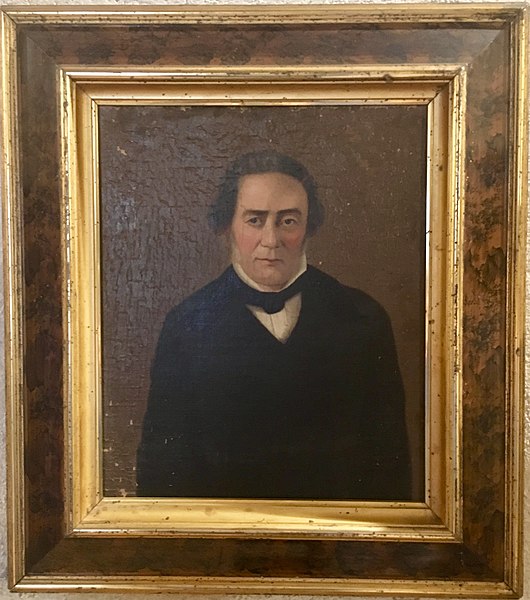
Reconstructing ancient environments on Earth depends on things that are much smaller than dinosaur fossils and petrified wood. Small amounts of organic compounds extracted from rocks often tell much more about what the ancient world looked like, and what types of organisms lived there. Students in Alex Sessions’ Organic Geochemistry class have been creating and expanding articles about some of these compounds. Crenarchaeol is a glycerol diphantanyl glycerol tetraether, a class of biological compounds that can be preserved for hundreds of millions of years in rock sediments and can help understand surface temperatures in the ancient ocean. A student editor in the class created an article about this compound that discusses its chemistry, formation, distribution and the roles it can play as a biomarker of different environments millions of years ago.
Other students in the class worked on articles about similar compounds. Tetrahymanol is another compound that is found in the membranes of a variety of organisms. In the process of rock formation, it is converted to gammacerane, can be preserved in rocks for at least 850 million years and may help to understand stratification in ancient oceans. While Wikipedia had an article on Taraxerol, it was only one sentence long before it was expanded by a student editor.
In addition to adding extensive information about its role as a biomarker in sediments, they also documented its chemistry, synthesis, and research into its pharmacological applications.
The cholestane article was similarly improved, from a very short, stubby article, into something much longer, more complete, and more informative.
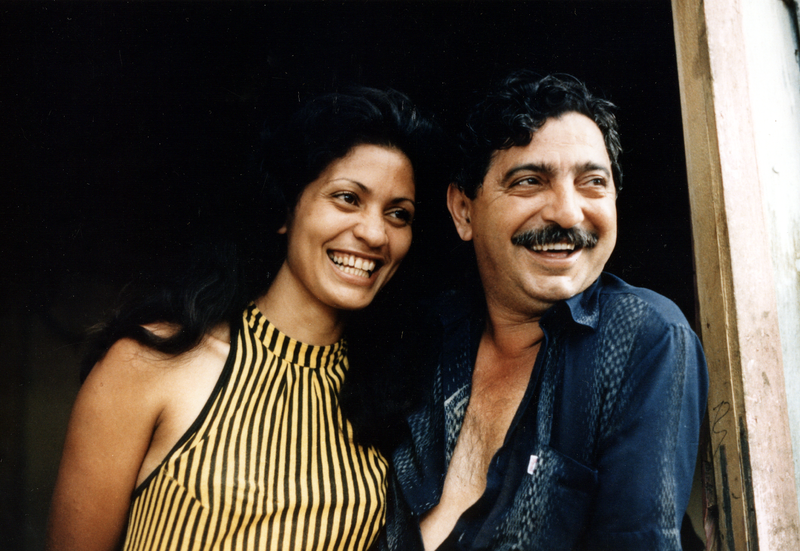
Image by Miranda Smith, CC BY-SA 3.0 via Wikimedia Commons.
Wikipedia coverage is notoriously biased for those who live in the West, downplaying or outright ignoring the lives and accomplishments from many regions of the Global South. We were proud to support Macalester College as they sought to improve South American topics through their course, Amazon: A Cultural History. One student greatly expanded Nísia Floresta, a 19th century Brazilian feminist and poet. The student added several brand new sections to the article so that readers can learn about Floresta’s educational philosophy, as well as her feminist ideals. Three students from the course applied their trainings to adding content on the article on Chico Mendes, a Brazilian environmentalist who was assassinated for his efforts to protect the Amazon rainforest and the human rights of its indigenous tribes. The students noted that Mendes’s efforts were honored when the government named a sustainable use reserve after him, the Chico Mendes Extractive Reserve.
Some described her as “a force.” Her work was called “exuberant” and “forward-looking without being radical; post-racial but also race-conscious.” Though she was under-appreciated in life, her work was chosen by Michelle Obama’s interior designer to hang in the White House. Alma Thomas was an African-American expressionist painter born in the Jim Crow Era in Georgia. She originally intended to study home economics when she enrolled in college in 1921, but switched to earn a degree in fine arts. A student in Hobart and William Smith Colleges’ African American Art course greatly expanded the article about Thomas, adding that her work was not widely recognized until she was 80 years old, and that her contributions to abstract painting are now identified as key. The student also added new content on Thomas’s process for creating her artwork, providing detailed coverage that serves to reflect the importance of this icon: she used color so masterfully, to possess such a painting was “like having Spring well before its appointed date.”
German philosopher Friedrich Nietzsche one stated that “Without music, life would be a mistake”. Many would likely strongly agree with this statement, particularly one San Francisco State University student in Larry Hanley’s Digital Literacies and Humanities class. This student chose to develop the article for the band Bambara, going so far as to bring it up to Good Article quality! This designation marks the article as one of the best articles on Wikipedia. This band was launched in Athens, Georgia, in 2009 by twin brothers Reid and Blaze Bateh and their friend William Brookshire. After deliberation the trio chose to name their band after a character in the animated television series Æon Flux. The band was signed to Arrowhawk Records in 2013 and released their debut album that same year. Their music was labeled as noise-rock in part due to their use of machines, loops, and other assorted lo-fi software. Bambara was geared to complete a full-length LP in mid-2014, only for it to be delayed until 2016 due to the theft of the computer containing all of the LP’s music recorded thus far. During this time the band released an experimental EP, which they credit as helping to get the noise “out of their systems”. They released a third album in 2018, after which they embarked on a European tour, followed by an announced 2019 tour of the East Coast.
Have you ever been at a job where you were expected to display certain types of emotions or to avoid other ones? If so, then this was a form of emotional labor, the process of managing feelings and expressions to fulfill the emotional requirements of a job. Jobs that would require emotional labor are ones such as social work and nursing as well as hospitality and food service, as showing the wrong emotions can interfere with a person’s ability to do their job properly and can distance themselves from those they seek to help. Thanks to a New College of Florida student from Sarah Hernandez’s Latin American Social Theory class, the article has been expanded. A student in Naniette Coleman’s research group on privacy at UC Berkeley also made a great contribution to Wikipedia by creating an article on State privacy laws of the United States. Several states have recently passed new legislation that adapt to changes in cyber security laws, medical privacy laws, and other privacy related laws. State laws are typically extensions of existing United States federal laws, expanding them or changing the implementation of the law.
Scholars & Scientists Program
Wikipedia courses
This was an exciting month for the Scholars & Scientists program, offering our first Advanced Wikipedia professional development course. Since Fall 2018, we have worked with the National Archives and Records Administration to run a series of courses focused on improving Wikipedia’s coverage of women’s suffrage in the United States, celebrating the centennial of the Nineteenth Amendment to the Constitution which gave women the right to vote. For the month of May, we brought together 7 alumni from those introductory courses to collaborate with Wiki Education staff in a deep dive into one high-profile Wikipedia article: the entry for the Nineteenth Amendment itself. After four weeks, our Wiki Scholars were responsible for 68.8% of the article’s content, more than doubling its size. Among other contributions, they added information about the ways in which the amendment’s passage did not resolve voting rights for everyone, and explained that several groups continued to struggle afterwards. Some of the article also seemed to emphasize the role of men in the struggle for women’s suffrage, which was addressed in the process of rewriting and reorganizing the article based on research in reliable sources. Thanks to these Wiki Scholars, the nearly 2,000 readers who access this page every single day will have access to a high-quality representative of this important subject.

This month we also wrapped up Communicating Science on Wikipedia, a Wiki Scientists course. The eight participants completed a 12-week course to learn to contribute their expertise to scientific articles on Wikipedia. In addition to finishing up high-quality articles we wrote about in last month’s report, like inhomogeneous cosmology and Evelyn Roberts, Wiki Scientists contributed to several new and existing articles. For example, Adriana Briscoe, Professor of Ecology and Evolutionary Biology at the University of California, Irvine. The Wiki Scholar expanded the article considerably to the point it has been nominated to be a Good Article. Another Wiki Scientist expanded the article on the Cascadia subduction zone, which has received some news coverage lately due to seismic activity in the Pacific Northwest but was missing much of that relevant information on Wikipedia.
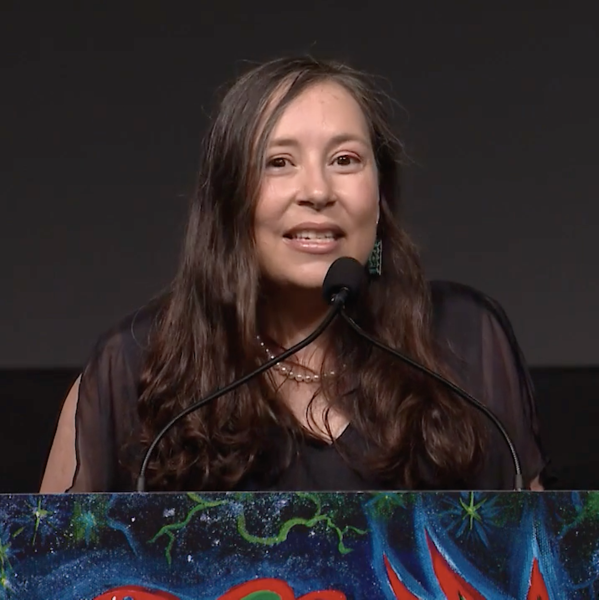
Image by SACNAS, CC BY-SA 4.0 via Wikimedia Commons.
Wikidata courses
We have been hard at work developing our new Wikidata courses, attending conferences, interviewing Wikidata community members, and identifying ways to teach Wikidata to the widest audience possible. To meet the needs of the library community and Wikidata, we have been developing a series of training modules and online courses. Wikidata is a vast project, but with direct support from instructors, we are aiming to train librarians to becoming Wikidata editors in just a few weeks.
In May, we worked on:
- Organizing two online Wikidata courses; one a beginner course geared toward participants who are new to linked data and an intermediate course for those who are more familiar with linked data
- Organizing an in-person Wikidata workshop in New York
- Recruiting for the courses and workshops
- Creating a series of Wikidata modules for participants to learn how Wikidata works and how to contribute to it
- Writing a curriculum to accompany these modules, modeled after our successful Student Program and the Wikipedia portion of the Scholars & Scientists program
Wikidata Program Manager Will Kent sat on the LD4 Conference planning committee, where he worked with a set of linked data specialists on establishing an agenda, creating an application, and bringing over 120 conference-goers to Boston in May. Wikidata proved to be a central theme at this conference, underscoring the excitement and curiosity around Wikidata.
Visiting Scholars Program
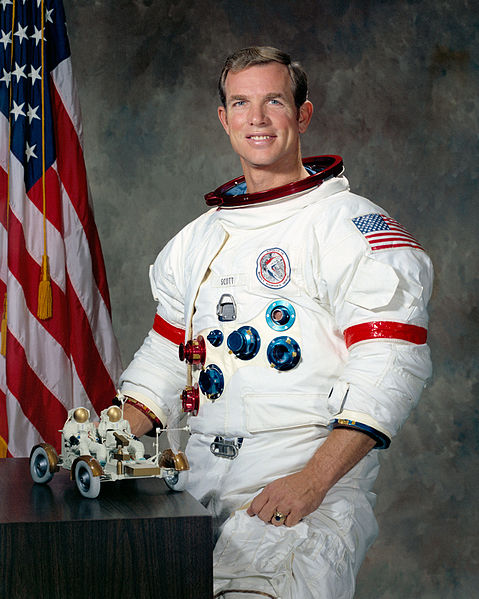
Wikipedia Visiting Scholars continued to contribute high-quality content to Wikipedia using resources available to them through a partnering institution.
Last month’s report included David Scott (born 1932), a retired test pilot who became the seventh person to walk on the Moon during the Apollo 15 mission. At the time, George Mason University Visiting Scholar Gary Greenbaum had brought the article up to A-class quality. Regular readers of our monthly report should be unsurprised that the prolific Featured Article writer has already elevated it to that level.
This month, Gary also brought an article he created on the Gadsden Purchase half dollar up to Featured Article status. The latest in a long series of numismatics Featured Articles, this commemorative coin, however, was never actually minted. Legislation passed both houses of Congress in 1930, but was vetoed by President Herbert Hoover (his first veto), taking a stance against the minting of commemorative coins in general.
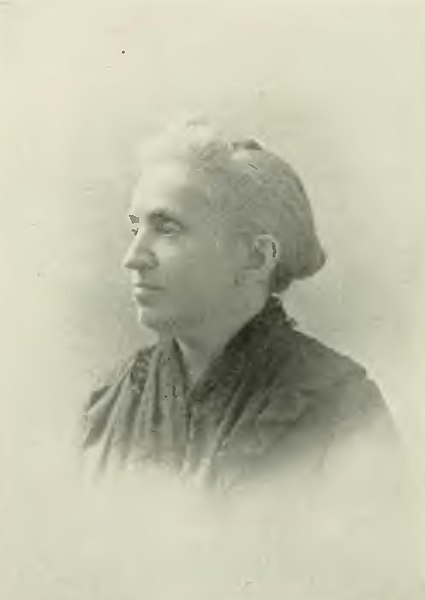
Rosie Stephenson-Goodknight, prolific Visiting Scholar at Northeastern University, created or improved ten biographies of women writers and suffragists this month. For example, Mary Holloway Wilhite (1831–1892) was a physician, philanthropist, and suffragist from Indiana.
She was the first female medical graduate from Indiana and the first female practitioner in the state in addition to being a women’s suffrage and women’s rights leader. Another example is Mary Traffarn Whitney (1852–1942), minister, editor, social reformer, philanthropist, and lecturer from New York. She was an early Universality women ministers.
Last month’s report also included Deep Carbon Observatory Visiting Scholar Andrew Newell’s work on the deep water cycle article. This month, it was featured on Wikipedia’s Main Page as a “Did You Know” with this hook:
“[Did You Know] that recent research has shown the presence of a deep water cycle all the way down through the Earth’s lower mantle?”
Advancement
A large portion of May was spent finalizing the annual plan and budget, and preparing for the June Board Meeting. We continued our fundraising research and outreach, and made great progress on our Wiki Scholars and Scientists partnership development. Our communications team also continued its strong tradition of storytelling and outreach.
Fundraising
No new grants were awarded this month, but we did develop and submit a full proposal for $40,000 USD to the WITH Foundation to support Wiki Scholars courses related to healthcare access and disability. This work aligns well with our equity goals. We anticipate learning more about the status of this proposal in early fall. We have been having ongoing conversations with another potential funder who is not able to provide funding at this point, but recommended we explore the funders who are members of Philanthropy for Active Civic Engagement (PACE) network. In addition to PACE, we are researching several other funder networks, including the Science Philanthropy Alliance, Grantmakers for Education, and Media Impact Funders. Finally, we received a status update on our grant proposal to the Heising-Simons Foundation. Our proposal is still under review with the foundation board, but we anticipate hearing news about approval of our grant sometime in mid-June.
Partnerships
As we closed applications this May for the final Wiki Scholars course run in collaboration with the National Archives and Records Administration (NARA), we saw a surge in interest, so we decided to run an additional NARA Wiki Scholars course this summer. We’re thrilled to see the impact participants are making on Wikipedia’s coverage of women’s suffrage in the United States.
Similarly, the Society of Family Planning (SFP) received so many applications for their summer Wiki Scientists course that they decided to sponsor a second course. We’re excited about working with medical practitioners and educators to add more reliable, scientific information to Wikipedia about family planning and contraception.
This month, we confirmed a Wiki Scholars course in partnership with the Colorado Alliance of Research Librarians. Librarians from several Colorado libraries will work with the Scholars & Scientists team to learn more about Wikipedia and how they can build Wikipedia-editing into their roles within the libraries.
We also started a partnership with the International Society for Technology in Education (ISTE) for their Digital Citizenship Commitment Initiative (#DigCitCommit). This campaign will call educators to take action in making digital citizenship a critical competency for students. Wiki Education’s Student Program will offer one way for educators to take action and engage students to teach these crucial skills.
Finally, Director of Partnerships Jami Mathewson attended the Colorado OER Conference at the end of the month to promote Wikipedia as a pedagogical tool for Open Educational Practice. Attendees were excited that Wiki Education offers a framework and support infrastructure for those looking to join the OER community. We can’t wait to see the great work they and their students do in the coming years!
Communications
There were a few Wikipedia-related awards this month! Program participants in our Student Program (as well as our staff!) received an award from the National Institute for Occupational Safety and Health (NIOSH) for educating the public through Wikipedia. Read more in our blog post. And Dr. Kathleen Sheppard, an instructor, was named Missouri University of Science and Technology’s 2019 Woman of the Year, in part because of her Wikipedia work. Read more in this month’s blog post about it.
We also published some guest-written posts this month featuring the experiences of two instructors and one student from our Student Program. Dr. Michael Rushing stressed that even small classes, like his music course at Mississippi College, can make a big difference on Wikipedia. Trudi Jacobson, Head of the Information Literacy Department at the University at Albany SUNY, explained how she wove a Wikipedia writing assignment together with the six frameworks of information literacy. And Derek Smith, a medical student at the UCSF School of Medicine, wrote about counteracting misinformation by making sure Wikipedia’s article about vaccinations represents current scientific research.
Blog posts:
- Professor named Woman of the Year for student-centered, equity-focused pedagogy (May 3)
- Developing metaliterate and information literate Wikipedians in the classroom (May 6)
- NIOSH gives award for educating the public through Wikipedia (May 13)
- So you’re looking for fulfilling professional development… (May 14)
- Small class, big footprint (May 16)
- Science communication in action at Northeastern (May 23)
- My experience editing Wikipedia’s “Vaccination” page during medical school (May 29)
- Prague Hackathon improves tools for users worldwide (May 30)
- Monthly Report, April 2019 (May 31)
- Everyday people changing the world for the better (May 31)
External media:
- WikiLeaks Is Not a Wiki. Stephen Harrison. Slate. (May 9)
- Engaging Students with Wikipedia. Kathleen Sheppard. OU Center for Digital Learning. (May 16)
- Engaging Students with Wikipedia. Kathleen Sheppard. Patch Thirty. (May 17)
Technology
Wiki Education’s Technology team, Sage Ross and Wes Reid, attended the Wikimedia Hackathon in Prague this month, where we focused on making the Dashboard operate better for global education programs like the “Studenti” program in Czechia. Teaming up with former intern Pratyush Singhal and Google Code-In veteran takidelfin, we met with Czech Wikipedians and worked on a number of their highest priority issues. This month we also kicked off this summer’s internships, with all three interns off to strong starts on their projects.
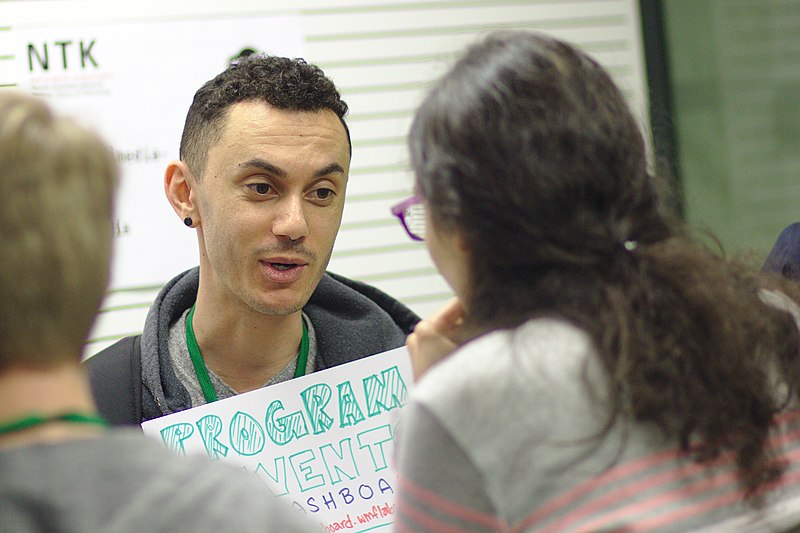
For both the Wikipedia Student Program and the Scholars & Scientists Program, we added a new feature to course pages that makes it easier to find the training modules, subject-specific handouts, and other reference material: the Resources tab. This new tab allows for simpler timelines, helps ensure editors find the right versions of their assigned training modules, and gives us more flexibility to customize the extra resources available for individual courses.
In late May, Sage and Wes began work on the first major project planned for the coming year, a major overhaul of the student user experience for the main article selection, research, writing, and peer review activities of Wikipedia Student Program courses.
Finance & Administration
The total expenses for May were $184,000, ($12K) below the budgeted $196,000. General and Administrative was under ($3K) due to a decrease in payroll and related location expenses, Governance was under ($9K), as the board meeting was budgeted to extend to both May and June, which will primarily be seen in June. Fundraising was under by ($19K) as there was a decision not to add another member to the department ($10K), reduced travel ($8K), and Indirect Costs associated with a reduction in staff ($1K). Programs was over budget by +$17K, as expected, with the decision not to reduce staff +$11K, the addition of outside professional work +$4K, attendance at a conference +$1K and Indirect expenses +$1K. Technology was also over budget +$2K, a combination of increased travel +$3K, outside contractors +$1K while having a reduction in wages ($3K).
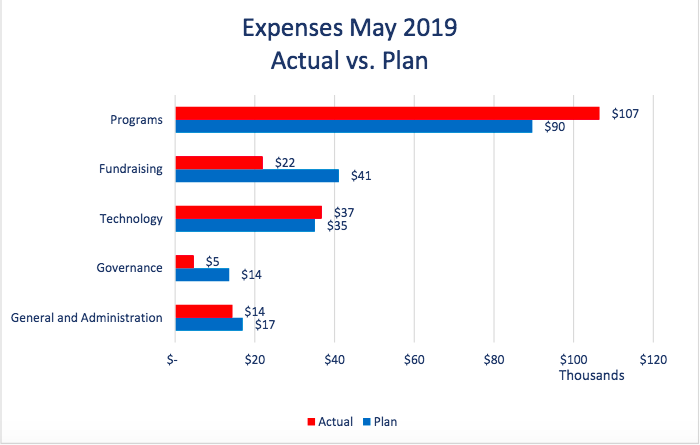
The Year-to-date expenses are $1.929M ($272K) below the budgeted $2.201M. It was known that Fundraising would be under by ($196K) due to a change in plan for professional services ($149K) and deciding not to engage in a cultivation event ($10K) and subsequent travel ($16K) as well as being under budget in payroll ($17K) and associated rent ($3K). Programs are under ($16K) due to a few changes in processes- Professional Services ($10K), Travel ($28K), Printing and Reproduction and software ($15K) Communication ($6K) and Indirect expenses ($26K) while reporting an overage in Payroll +$66K and furniture and equipment +$4K. General and Administrative are under ($24K) due to a reduction of payroll ($19K), Meetings ($8K), professional fees mostly relating to Audit and Tax prep ($7K) and furniture ($3K), while over +$13K net effect of location and indirect expense allocation. The Board is under budget by ($8K) due to board meeting timing but are expected to be on target at Fiscal Year End. Technology is under budget by ($28K) as there was a change in plans in utilizing the budgeted professional fees ($21K) and payroll ($9K) and additional rent ($9K) and instead increased Furniture and equipment +$4K, Travel +$3K and Communication +$2K.
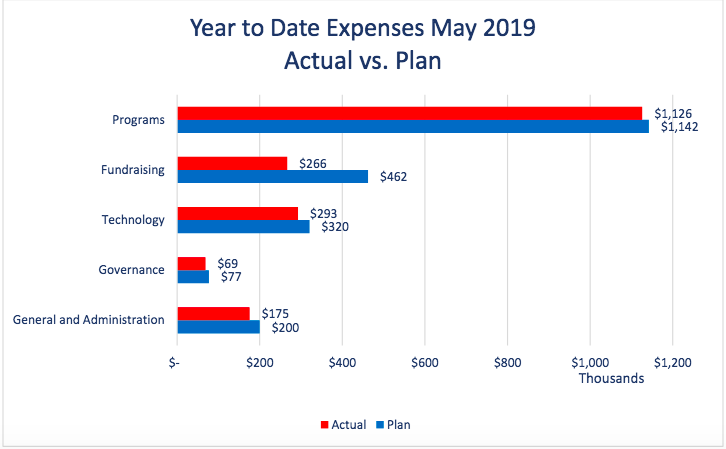
Office of the ED
Current priorities:
-
- Finalizing the annual plan & budget for next fiscal year
- Preparing for the upcoming board meeting in early June
May is traditionally the month for our Senior Leadership Retreat at the Green Gulch Farm Zen Center in Marin County. Due to its remote location and the inherent Zen spirit, Green Gulch offers the best conditions for deep reflection, discussions, and team building.
During the two days we spent at the Zen Monastery and Retreat Center this year, we focused on creating a shared understanding of the departmental plans for 2019–20 and on putting the last touches on the annual plan narrative. Senior leadership members also engaged in small activities aimed at spurring conversations about individual character styles and strengths and about how our different approaches in thinking and behaving influence our performance as a team. As a result of the two-day retreat, we were able to create better alignment around our goals for next year and lay the foundation for submitting the first draft of our annual plan and budget to the board.
After the board provided feedback on the first draft of the new annual plan, the Senior Leadership team reviewed the feedback, made changes to the document, and sent the final version back to the board as planned on May 31.
